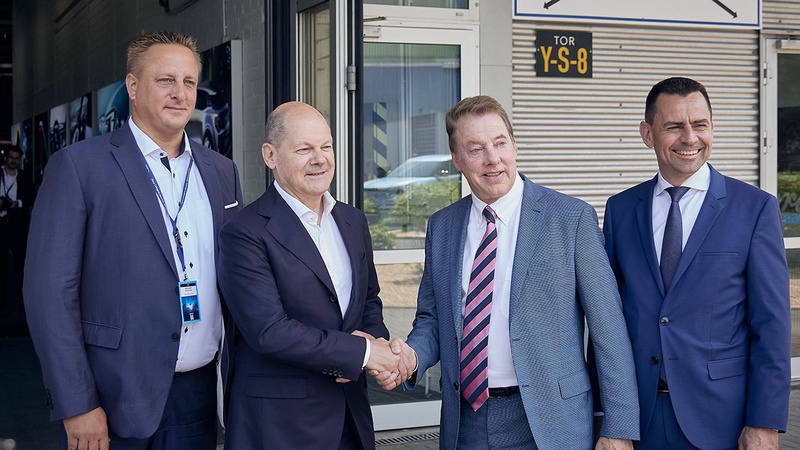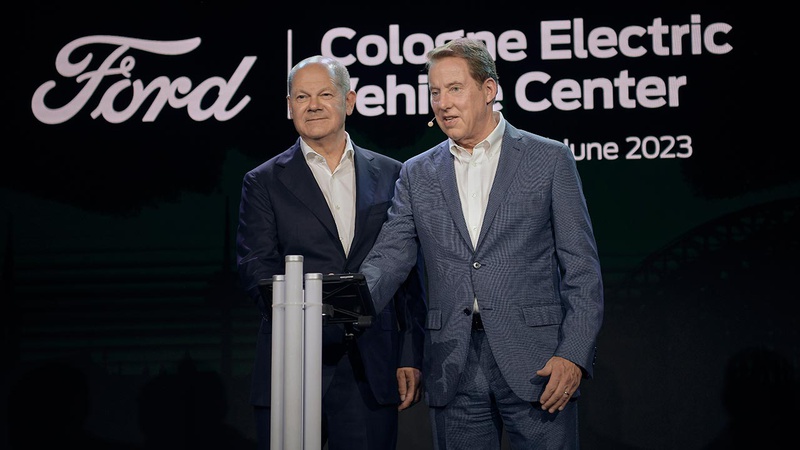The transformation of the historic Niehl plant in Cologne involved a $2 billion investment. The new EV Center has a production capacity of over 250,000 electric vehicles annually and is equipped with advanced technologies such as a brand-new production line, battery assembly, and state-of-the-art tooling and automation.
The Cologne EV Center is Ford's first carbon neutral vehicle assembly plant globally and supports the company's commitment to achieving carbon neutrality across its entire European footprint of facilities, logistics, and direct suppliers by 2035.
The facility will produce the electric Explorer, Ford's fourth global electric vehicle, as well as a second electric vehicle, a sports crossover.
The Cologne plant has a rich history in the European automotive industry, having produced iconic vehicles such as the Ford Model A, Taunus, Capri, Granada, and Fiesta.


With an annual production capacity of 250,000 EVs, the new EV Center supports the company’s global plans to reach a run rate of two million EVs annually by the end of 2026
The Cologne EV Center implements digital advancements to connect machines, vehicles, and workers, incorporating self-learning machines, autonomous transport systems, big data management, cognitive and collaborative robots, and augmented reality solutions.
Ford is actively working to reduce energy usage and emissions in the plant through new processes, machinery, and technologies. All electricity and natural gas used in the facility are carbon neutral, and the heat required is also carbon neutral through offsetting emissions.
The technological upgrade of the Cologne EV Center includes ecological improvements to biodiversity and the ecological balance of the factory greenspace.
Ford's commitment to a zero-emission future and carbon neutrality in Europe is part of its Ford+ plan, which includes the Model e, Ford Pro, and Ford Blue business units. The company aims to accelerate its European transformation to an electric and carbon neutral future by 2035.
Source: Ford

